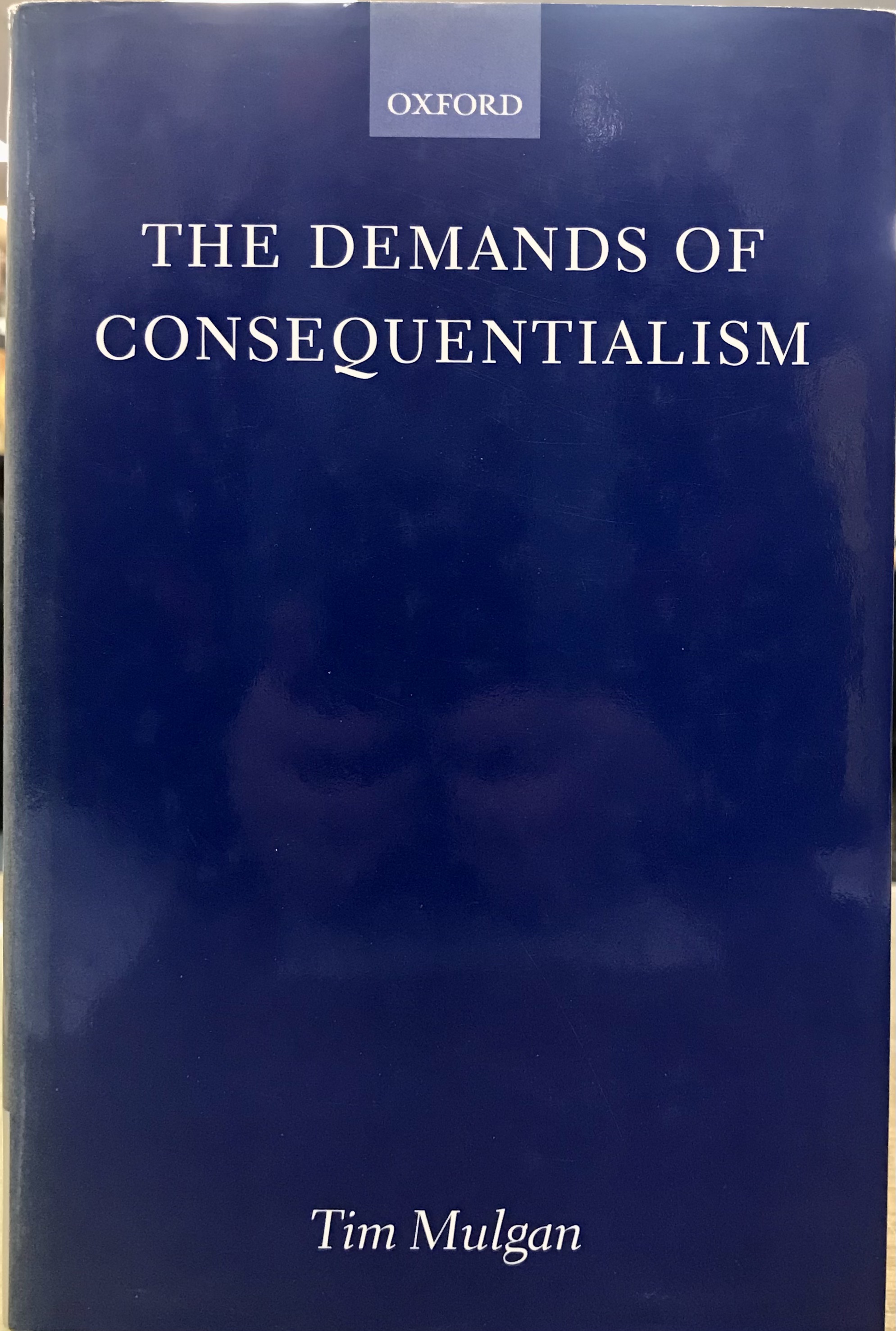
The Demands of Consequentialism
Clarendon Press, Oxford, 2001. Black hardcover in tidy condition. Contents tight and clean with just a touch of foxing to e/p's and page edges. Inscription to his grandparents, signed Tim on title page. Dust jacket is good but has faded spine.
According to consequentialism, we should always put our resources where they will do the most good. A small contribution to a reputable aid agency can save a child from a crippling illness. We should thus devote all our energies to charity work, as well as all our money, till we reach the point where our own basic needs, or ability to keep earning money, are in jeopardy. Such conclusions strike many people as absurd. Consequentialism seems unreasonablydemanding, as it leaves the agent no room for her own projects or interests. Tim Mulgan examines consequentialist responses to this objection. A variety of previous consequentialist solutions areconsidered and found wanting, including rule consequentialism, the extremism of Shelly Kagan and Peter Singer, Michael Slote's satisficing consequentialism, and Samuel Scheffler's hybrid moral theory. The Demands of Consequentialism develops a new consequentialist theory, designed to be intuitively appealing, theoretically sound, and only moderately demanding. Moral choices are first divided into distinct realms, primarily on the basis of their impact on the well-being ofothers. Each realm has its own characteristic features, and different moral realms are governed by different moral principles. The resulting theory incorporates elements of act consequentialism, ruleconsequentialism, and Scheffler's hybid theory. This original and highly readable account of the limits of consequentialism will be useful to anyone interested in understanding morality. Tim Mulgan presents a penetrating examination of consequentialism, the theory that human behaviour must be judged in terms of the goodness or badness of its consequences. The problem with consequentialism is that it seems unreasonably demanding, as leaving the agent no room for our own aims and interests. In response, Mulgan offers his own version of consequentialism, one that we can live with.
